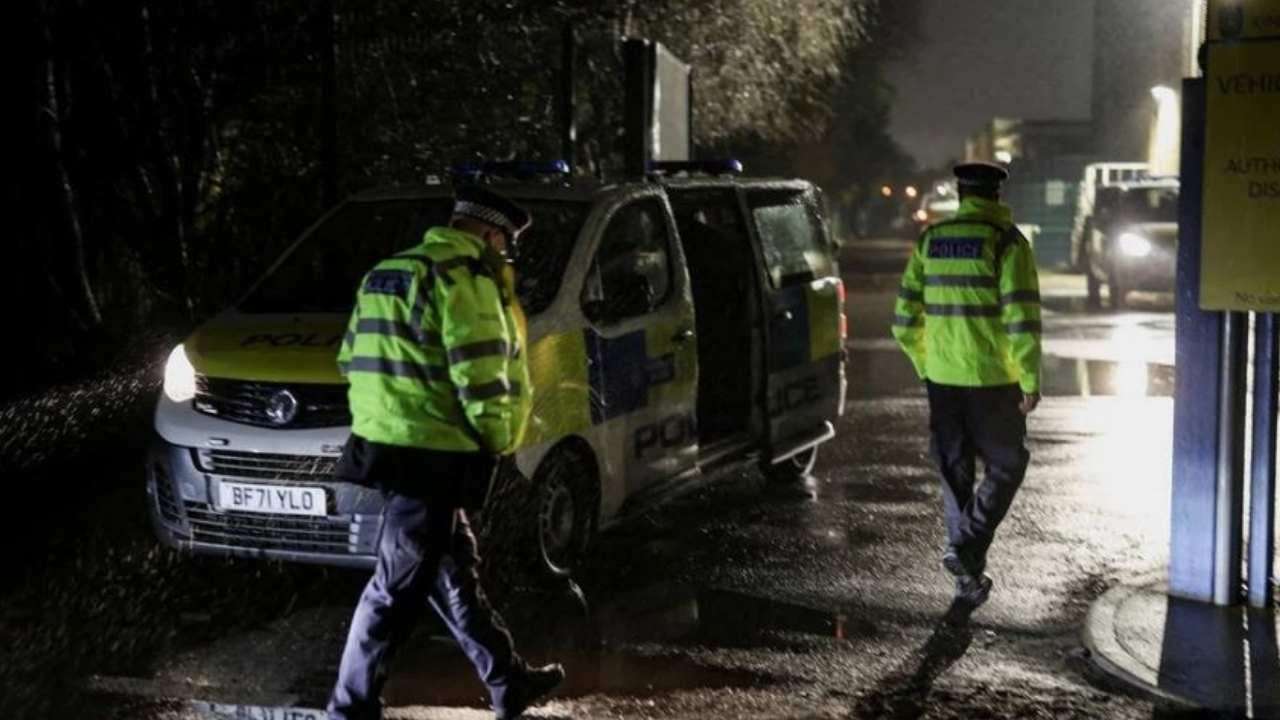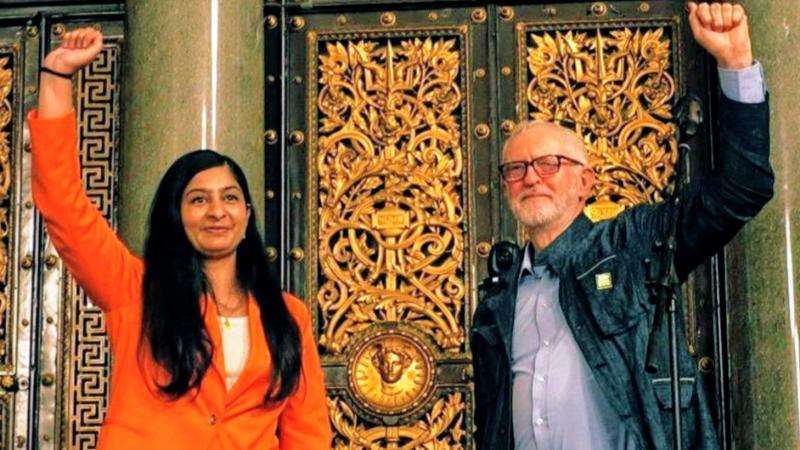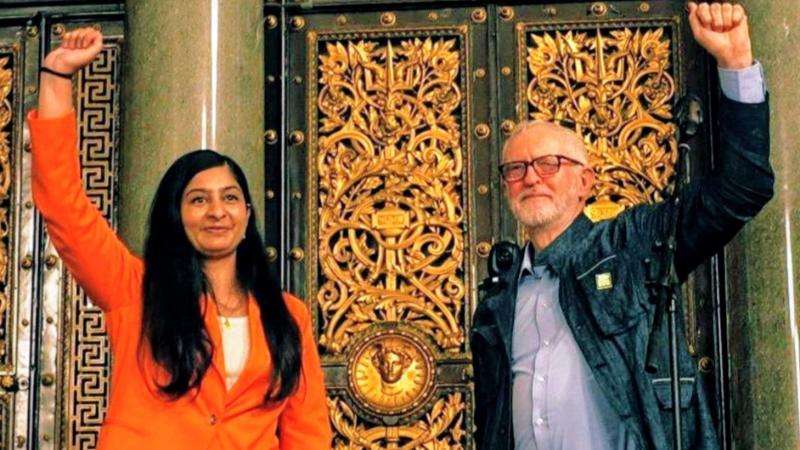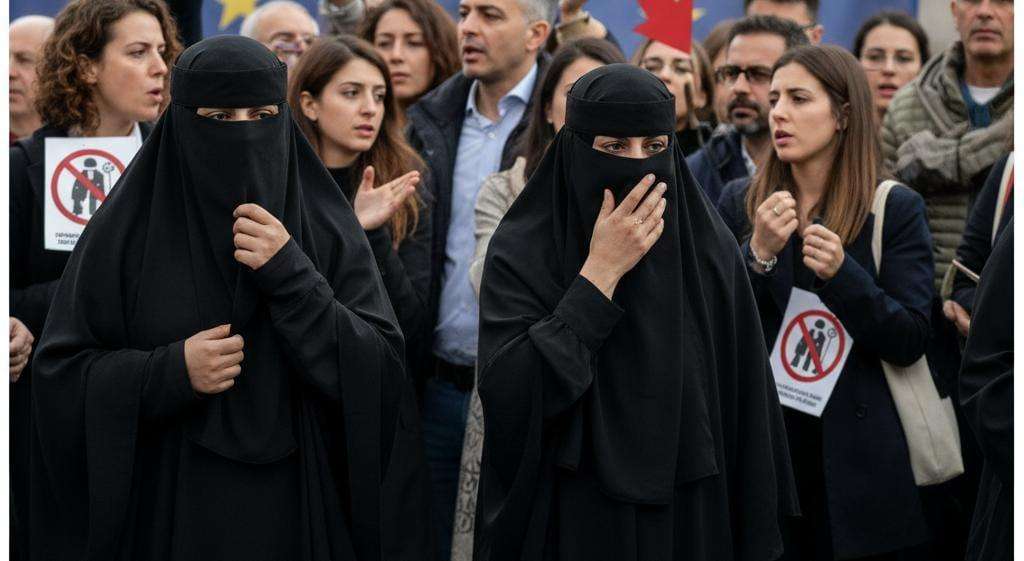Among the immigrant, Asian, Muslim, and broader ethnic minority communities across the UK, Jeremy Corbyn maintains an extraordinarily high level of personal political popularity. He stands as the most favoured political figure within these demographics. The crucial question now facing observers is whether this deep personal appeal, and the new political party he is co-leading, can translate into a significant, lasting impact on the landscape of British politics. Should this latest venture falter, many believe it would extinguish the near-term hope for a viable left-wing political future not only in the UK but across Europe as well, Daily Dazzling Dawn realized.There is emphatically no looking back in anger for the co-leaders of Your Party, Jeremy Corbyn and Zarah Sultana, who have spent the past 48 hours showcasing a remarkable display of unity following their highly publicised falling out last month.
The reconciliation culminated at The World Transformed (TWT) conference in Manchester on Friday, 10 October 2025, where Ms Sultana likened their partnership to the famously feuding Gallagher brothers of Oasis, quipping, "If they can do it, of course me and Jeremy can." This light-hearted comparison, made in the band's birthplace, cemented the message that the "show is back on the road" for the fledgling left-wing venture.
The Road to Reconciliation-The newfound harmony follows a bitter public row in September over the party’s paid membership system, which was unilaterally launched by Ms Sultana but disavowed by Mr Corbyn, who leads an alliance of independent MPs supporting the project. The dispute escalated when Ms Sultana alleged she had been "sidelined by a sexist boys club" and even consulted defamation lawyers, a threat she later dropped to prioritise reconciliation.
The charm offensive began with a rally at Liverpool's St George's Hall on Thursday night, attended by an estimated 800 people. Speaking there, a more contrite Ms Sultana delivered a serious apology, stating she was "truly sorry" for her part in the launch "fiasco" and the frustration felt by supporters.
During the TWT panel, while Mr Corbyn did not directly address the internal tensions, he had previously acknowledged the party had faced some "fraught days" and hadn't "covered ourselves in glory," expressing regret for the confusion. Ms Sultana, when asked about sexism at the top of the party, acknowledged that "misogynistic aspects of all society" exist, but insisted, "we are addressing that, and we are moving forward."
The Party’s Socialist Red Lines Emerge-With internal friction seemingly contained, the leaders pivoted to articulating the policy direction for what they are determined to be a "socialist progressive party."
Key policy lines confirmed by the co-leaders include an "anti-imperialist" stance and withdrawal from NATO, a position which explicitly goes further than Mr Corbyn’s previous Labour manifesto. Both were also unequivocal in their support for trans rights, affirming that "trans rights are human rights."
This clear-cut position puts them at odds with some within the supporting Independent Alliance, notably MP Adnan Hussain, who previously sparked controversy by arguing that safe spaces for women "should not be encroached upon" and that trans women are "not biologically women." This policy clash underscores an ideological tension that Your Party will need to resolve as it develops its official platform.
Future Focus: Membership and Electoral Ambition-The immediate future of Your Party rests on establishing a robust, democratic structure ahead of the May local elections and, crucially, its founding conference.
The party's launch website, intended for expressions of interest, attracted over 700,000 sign-ups in the first weeks following its July 2025 announcement, demonstrating significant hunger for a new left-wing option.
Official Membership: The official paid membership, priced at £5 per month, opened in September. While current precise figures are not publicly disclosed, Mr Corbyn told the TWT conference that membership levels are "slightly higher" in London and the North West.
Local branches are actively being set up by volunteers across the country, with Mr Corbyn urging them to hold at least one public event per month to ensure the party stays "1,000% relevant." However, internal voices have pressured the leadership to release supporter data to accelerate the formation of these local "proto-branches."
Founding Conference: The inaugural party conference is scheduled for 29 and 30 November in Liverpool. The party plans for 13,000 members to be selected by lottery to attend and debate and amend the party's founding documents. A recent report indicated that the venue, the Arena and Convention Centre (ACC) Liverpool, was unaware of a confirmed booking for those dates, raising questions about logistical readiness.
The ‘Split Vote’ Debate-Both leaders robustly rejected the notion that their party is responsible for fragmenting the left-wing vote, arguing that Labour's shift "so far to the right" under Sir Keir Starmer is the true cause.
Ms Sultana drew a sharp dividing line with the Green Party, dismissing an alliance by noting they are "not explicitly socialist" and believe "NATO has a role to play." Mr Corbyn, while affirming their own principles, adopted a more pragmatic tone, suggesting that in the current First Past the Post electoral system, alliances with groups like the Greens, despite policy disagreements, may be necessary to "make progress."
The new leader of the Green Party, Zack Polanski, who also spoke at TWT, offered a counter-invitation, saying his "door is always open" to both Corbyn and Sultana, preferring them to join the Greens rather than work separately. This ongoing dialogue with the Greens highlights the fluid, competitive nature of the left-of-Labour political space.
Daily Dazzling Dawn Analysis: The Oasis Effect-Is it true There's no looking back in anger for the co-leaders of Your Party, who have spent the past 48 hours putting on a show of unity after their falling out last month?
The 'Your Party' unity show, epitomised by Zarah Sultana's cheeky nod to the Gallagher brothers, is less a reflection of genuinely resolved personal animosity and more a shrewd political necessity. The public reconciliation is a powerful, almost desperate, attempt to draw a line under a disastrous internal spat that threatened to implode the project before it had even selected a formal name.
In this nascent stage, the immediate answer to 'is it true' is: Yes, for now, out of sheer survival.
The 'show of unity' at the Liverpool rally and TWT conference was strategically vital. The party’s base—estimated by the 700,000 expressions of interest—is overwhelmingly driven by principle: a desire for a socialist, anti-imperialist, working-class alternative to Starmer’s Labour. The bitter, factional row over a simple membership portal was precisely the kind of internal squabbling that demoralises activists and validates critics who dismiss the project as a flash-in-the-pan vanity exercise.
The key to the long-term truth lies in the three immediate challenges facing the party's future:
Defining the Future Power Structure: The core of the September row was a clash between Ms Sultana’s move for a membership-driven financial and organisational structure and Mr Corbyn’s, and the Independent Alliance’s, preference for a slower, alliance-based approach. While Ms Sultana's legal threats are withdrawn, the founding conference in November must definitively determine the party's democratic processes and the balance of power between the co-leaders, the Independent MPs, and the grassroots membership. If this process is perceived as undemocratic or as a stitch-up, the unity will crack again.
Converting Interest into Members and Candidates: The initial surge of 700,000 supporters is meaningless without conversion to paid members (currently £5/month) who actively form the local branches required to contest elections. The May local elections are the party's first test. A failure to field a meaningful number of candidates, or a poor showing in key areas, will see the initial enthusiasm dissipate rapidly. The current pressure on the leadership to share membership data to accelerate local organising suggests the ground operation is still lagging behind the national profile.
Ideological Cohesion: The clear red lines established by the co-leaders—NATO withdrawal and absolute support for trans rights—are central to their socialist identity, but they already clash with positions held by a key supporting MP, Adnan Hussain. This highlights a critical question: Can the party maintain ideological purity to satisfy its base while simultaneously accommodating the Independent Alliance's diversity and building the broader coalitions (like with the Greens) necessary for electoral success?
The current unity is a fragile truce, built on a shared, urgent fear of a right-wing government led by Nigel Farage and the desire to build a genuine left alternative. The success of Your Party is no longer about the celebrity of its co-leaders, but its immediate, concrete organisational steps in the next six weeks. They have put the show back on the road, but the roadmap to their final destination remains unwritten and fraught with internal roadblocks.








.svg)


